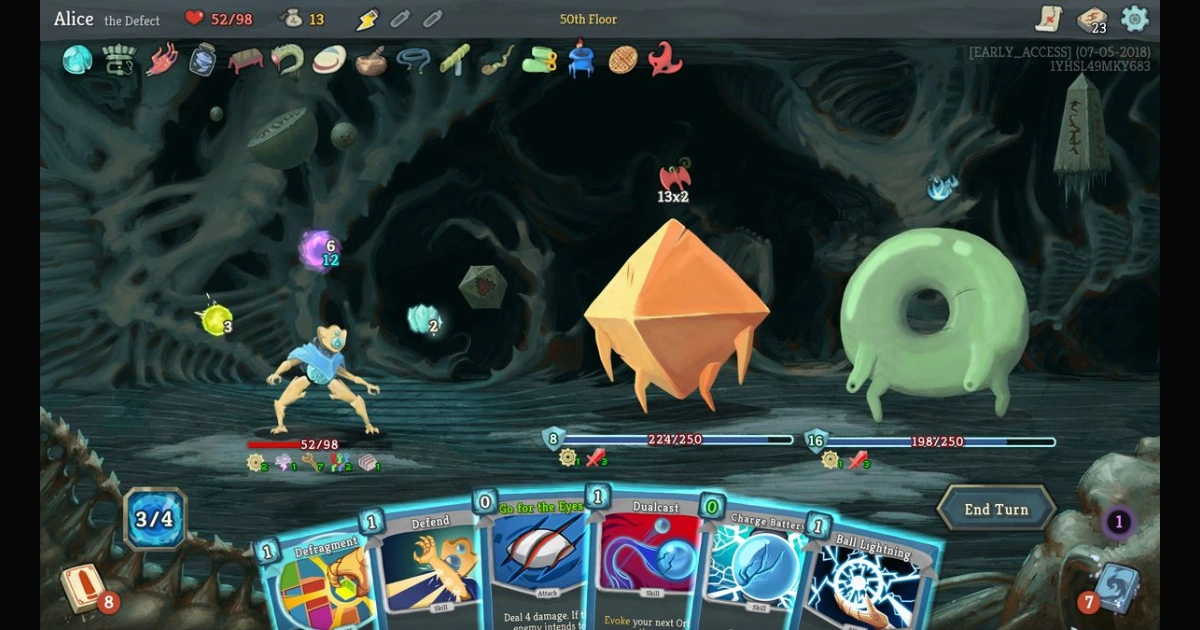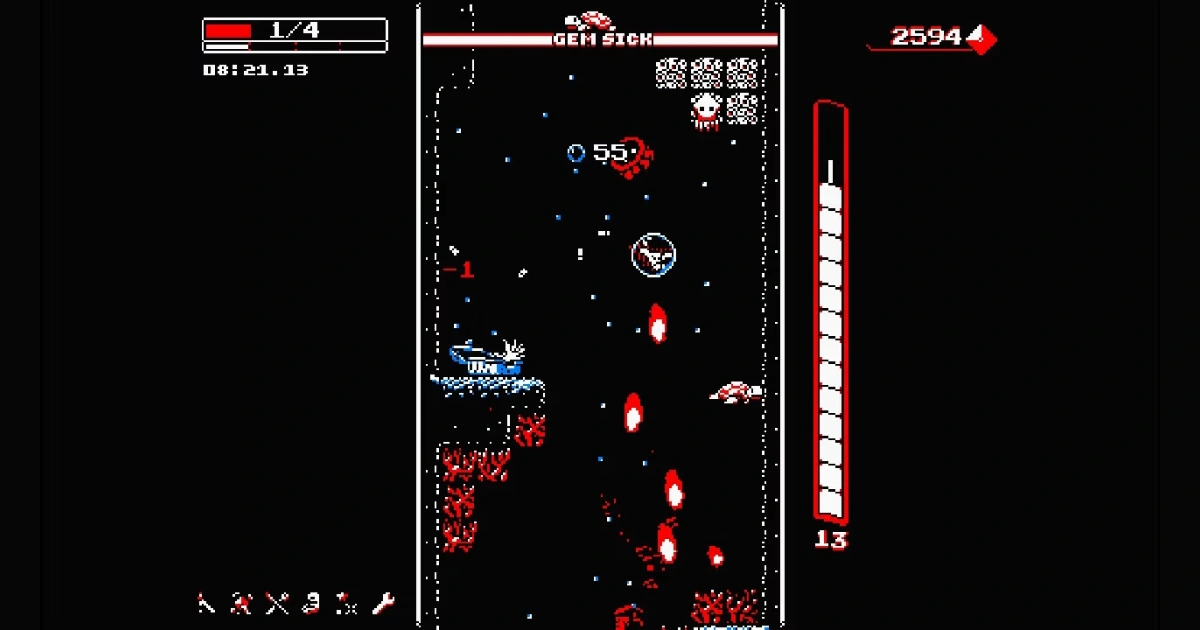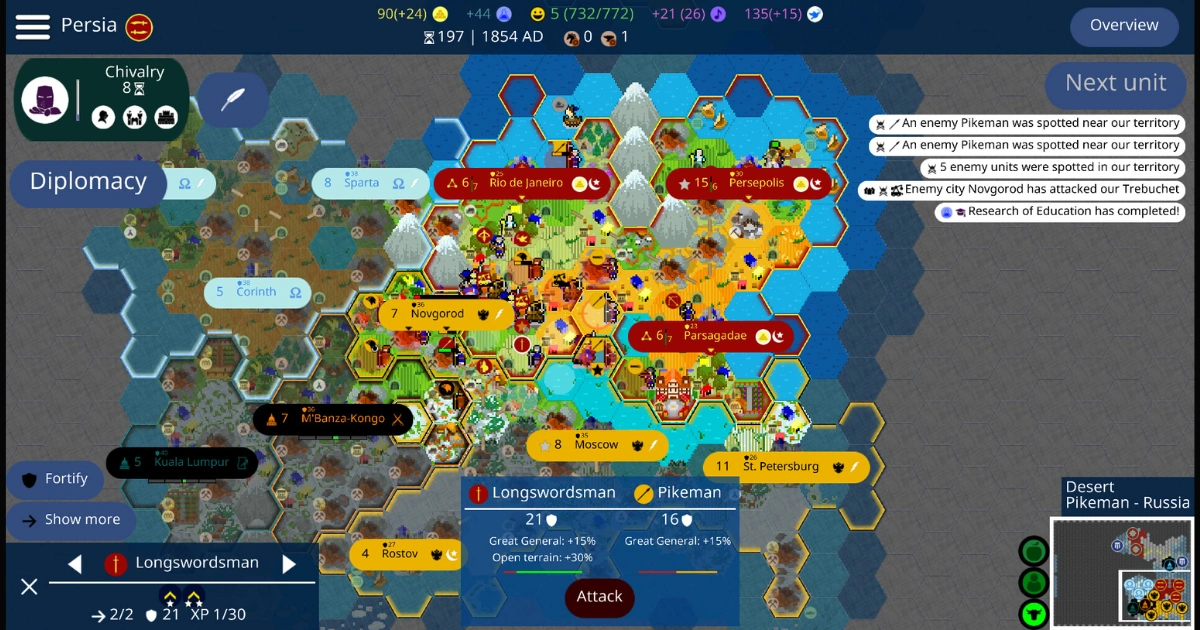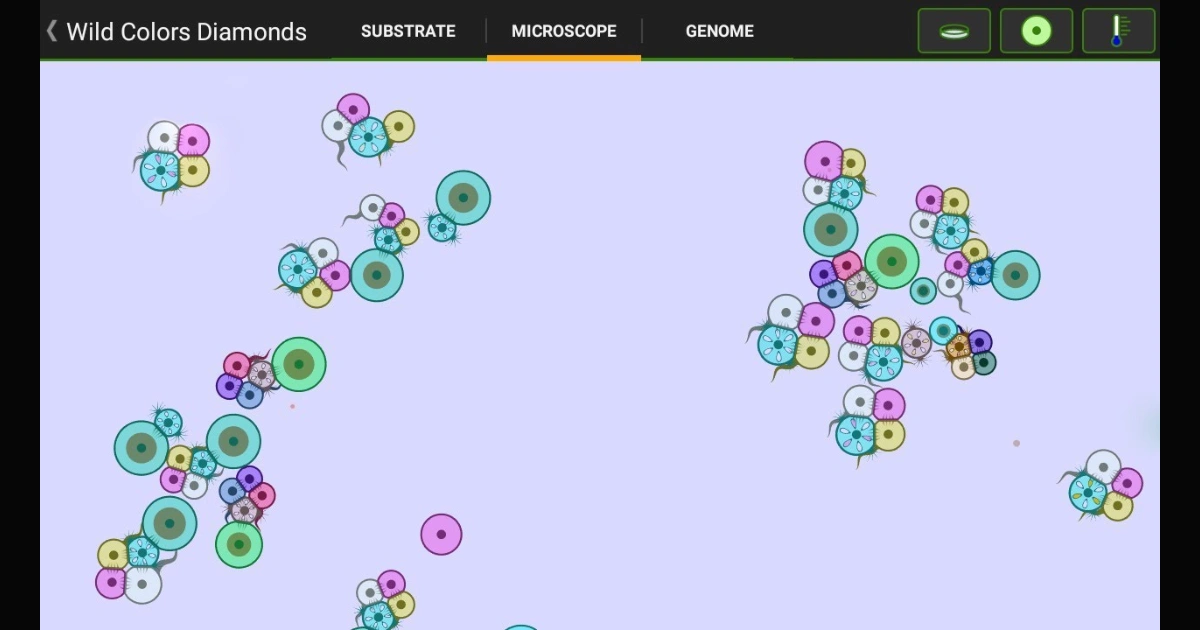Once upon a time, mobile gaming meant killing five minutes on Candy Crush while waiting for your coffee to brew. But that era’s long gone. Today, your phone isn’t just for mindless swipes and match-three marathons, it’s a legitimate gaming platform stacked with some of the most inventive, challenging, and downright addictive games you’ll find anywhere.
In fact, the sheer variety of mobile games today rivals, and in some cases even outpaces, what you’d expect from your shiny gaming PC or next-gen console. But with so much out there, finding the truly great ones can feel like panning for gold in a sea of aggressively monetized garbage and clickbait clones. That’s where this list comes in.
I’ve logged hundreds of hours across these games, sometimes obsessively grinding builds at 2 AM, sometimes testing out weird strategies just to see if they’d break the system, and sometimes just getting my teeth kicked in while learning the ropes. I’ve also dug through countless reviews, community forums, developer updates, and personal playthroughs to curate a lineup that’s more than just the usual suspects.
So, here are the coolest mobile games you should be playing right now, no microtransaction traps, no fluff, just pure, concentrated gaming goodness.
1. Exiled Kingdoms
Every once in a while, a mobile game shows up that doesn’t just feel like a stripped-down, bite-sized version of its PC ancestors, it feels like it is one. Exiled Kingdoms is that game. It’s basically what you’d get if someone locked up a 90s CRPG in a vault for two decades, then handed it a touchscreen and let it loose on Android. And it absolutely rules.
At its core, Exiled Kingdoms is a love letter to an era of RPGs where progression was earned, not handed out like free samples. You’re not going to be swimming in epic loot five minutes after killing your first rat. No, here you’re scraping by with whatever rusty gear you can find, slowly grinding your way up as you explore dangerous dungeons, complete meaningful quests, and piece together your build one hard-earned upgrade at a time.
The character customization runs deep, you’ve got the freedom to become anything from a slow, heavy-hitting brute with a giant two-hander to a dual-wielding assassin melting enemies before they even react. You can build a nimble archer who turns mobs into pincushions or a wizard lobbing devastating nukes from across the battlefield. And that’s not even counting the hybrid classes: tanky battle priests, spellblades, and more. Each build feels distinct, and more importantly, earned.
Where Exiled Kingdoms really plants its flag, though, is in how it handles exploration. There’s no glowing quest markers or GPS breadcrumbs here. NPCs drop hints through rumors and dialogue, and it’s up to you to connect the dots, remember that shady guy who mentioned the ruins up north, and actually find them yourself. Screw around in the wrong area too early, and the game has zero problem absolutely wrecking you. You’ll learn fast that reading between the lines isn’t optional, it’s survival.
Combat isn’t just a spam-fest either. Preparation matters. Resistances, companion loadouts, potion management, you’re constantly weighing your odds before diving into the next fight. Choices matter too, with multiple quest outcomes and even alternate endings depending on your decisions.
What makes Exiled Kingdoms stand out in the mobile landscape is how refreshing its refusal to hold your hand feels. No pay-to-win nonsense, no energy timers, no autoplay garbage, just you, your build, and the world. It’s pure, unfiltered RPG goodness that respects your time and intelligence.
The early game is rough. Start with a Warrior or Cleric to give yourself some breathing room while learning the ropes. Don’t ignore rumors from taverns, they often point to great loot or deadly traps. And always carry spare potions. Trust me.
2. Slay The Spire
If Exiled Kingdoms is a love letter to classic RPGs, Slay the Spire is basically the blueprint for how to nail deck-building roguelikes. It’s the game every other deckbuilder wishes it was, and the fact that it fits perfectly on mobile feels borderline illegal.
At a glance, Slay the Spire seems simple enough: pick a character, climb 50 increasingly brutal floors, build a deck as you go, and try not to get your face caved in before you reach the boss. But what starts as a few cards quickly snowballs into one of the most addictively complex decision-making loops in gaming. Every fight, every card drop, every relic, it’s a constant balancing act between building something powerful and not accidentally sabotaging your own run.
What really locks Slay the Spire into “just one more run” territory is its roguelike DNA. Death isn’t a setback, it’s research. Every failed run teaches you something. And with each attempt, you get better at reading your options, spotting synergies, and knowing when to pivot your strategy on the fly. You’re not just playing against the game, you’re playing against your own greed, your own optimism, and the ever-lurking chaos of RNG.
Why Slay the Spire absolutely slaps:
- Strategic Deckbuilding: Every card matters. Build around synergies or patch holes on the fly.
- Roguelike Structure: Death resets your run, but fuels long-term learning.
- Ascension Levels: 20 increasingly brutal difficulty tiers for masochists (and perfectionists).
- Multiple Characters: Each with entirely different mechanics and deck possibilities.
- Short or Long Sessions: Play for 5 minutes or lose an entire afternoon, it works either way.
Perfect RNG Balance: Enough randomness to keep things interesting, but never unfair. - Mobile Perfection: No compromises on touchscreen, crisp UI, buttery smooth controls.
Slay the Spire isn’t just one of the best games on mobile, it’s one of the best games period. Whether you’re a strategy junkie or just looking for a dangerously addictive time sink, you’ll be climbing this tower for a long, long time.
3. Retro Bowl
Retro Bowl is what happens when someone takes the overwhelming chaos of American football, shaves off all the complicated stuff, and distills it into pure, uncut arcade satisfaction. You don’t need to know a single thing about cover-two defenses or slot receiver routes, you just pick up your phone, sling the ball, and have a blast.
The magic of Retro Bowl lies in its dead-simple slingshot mechanic. You drag your finger back to aim your quarterback’s pass while your receivers dart downfield, waiting for that perfect bullet. Nailing a tight spiral into double coverage or threading the needle at full sprint is endlessly satisfying, and every completed pass feels like you just pulled off a highlight reel play.
But Retro Bowl isn’t just a one-trick arcade pony. There’s just enough light team management baked in to keep you invested between games. Draft new players, upgrade your staff, juggle contracts, and occasionally smooth things over with your disgruntled stars or fickle fans. It strikes the perfect balance: simple enough not to overwhelm, but deep enough to give you some actual stakes.
4. Slice & Dice
On paper, Slice & Dice sounds almost too simple: you roll dice, you fight monsters, you repeat. But don’t let the minimalist package fool you, beneath that clean interface lives one of the most dangerously addictive strategy games on mobile.
Each turn, you roll dice for your team of heroes. Those dice determine your attacks, heals, shields, and abilities for the round. But it’s not just a matter of accepting whatever RNG throws at you, you can reroll, plan combos, and carefully sequence your moves to squeeze every ounce of efficiency out of your team. Every decision matters, and a single smart play can turn a near-death situation into a clutch victory.
The real depth kicks in as you progress:
- Dozens of Hero Upgrades: Each hero can evolve into multiple specialized versions, drastically changing your strategy.
- Massive Build Variety: Weapons, trinkets, and abilities constantly change your options.
- Quick, Satisfying Runs: Knock out a full dungeon crawl in 10 minutes, or get sucked into “just one more run” for hours.
- Fair Monetization: Generous free trial, one-time purchase for full access, no ads, no microtransactions.
What Slice & Dice nails is its perfect blend of speed and depth. Every run throws new team compositions, enemy combos, and tactical puzzles your way, forcing you to adapt and rethink your approach constantly. The random rolls keep things spicy, but victory always comes down to smart decision-making, not dumb luck.
5. Downwell
At first glance, Downwell looks like one of those tiny retro throwbacks you scroll past in the App Store, assume it’s some shallow score-chaser, and move on. But if you make that mistake, you’re sleeping on one of the most tightly designed, brutally satisfying arcade experiences mobile gaming has to offer.
The premise couldn’t be simpler: you fall down a well. That’s it. But your secret weapon, literally strapped to your feet, are gunboots. Every time you jump or fire, you blast downward, killing enemies, hovering mid-air, and managing your descent all at once. Shooting isn’t just offense, it’s mobility, defense, and resource management rolled into one.
Every second you’re falling is a constant tug-of-war between playing it safe or pushing your luck. Where Downwell really shines is in how much expression it gives you within its tiny vertical tunnels. Some runs you’ll methodically clean out every enemy, bouncing from head to head like an acrobat. Others, you’ll panic-plummet through chaos, barely landing shots and praying for a safe ledge. Either approach works, if you can survive.
And don’t let the tiny price tag fool you, there’s real build strategy here thanks to its weapon styles and upgrades. Each power-up forces you to constantly rethink your playstyle:
- Triple Shot: Great for wide coverage, but eats through ammo fast.
- Laser: High damage, precision shot, risky but rewarding.
- Burst: Balanced spread, ideal for beginners still learning spacing.
- Knives & Forks (Upgrade): Eat defeated enemies for health, an absolute beginner lifesaver.
Downwell is the ultimate “easy to learn, impossible to master” mobile game. It’s fast, it’s intense, and once it clicks, you’ll find yourself chasing combos like your life depends on it, because it does.
6. Unciv
You wouldn’t think a full-on Civilization V-style empire builder could fit in your pocket. And yet, Unciv exists, a minimalist, open-source miracle that somehow crams an entire 4X strategy game into your phone without frying your battery or your brain.
This is pure Civilization:
- Explore uncharted land for resources and rivals.
- Expand your borders with carefully placed cities.
- Exploit resources for science, culture, and gold.
- Exterminate (or outmaneuver) rival empires to claim victory.
But where Unciv really flexes is in its stripped-down presentation. No fancy animations. No bloated cutscenes. Just pure, addictive strategy, fast turns, clean interface, and shockingly deep mechanics that’ll feel immediately familiar to Civ veterans. And because it’s open-source, the community’s constantly adding mods, tweaks, and updates, making sure the game stays fresh and endlessly replayable.
Unciv might not win any beauty contests, but if you care about gameplay over graphics, it’s one of the most shockingly complete strategy experiences you can get on mobile, and it won’t cost you a dime.
7. Cell Lab
If Spore and a molecular biology textbook had a weird, brilliant baby, it would be Cell Lab. This is one of the most uniquely nerdy, and secretly addictive, games you’ll ever stumble across on mobile. And once you wrap your head around its systems, it’s an absolute rabbit hole of microscopic creativity.
At its core, Cell Lab is a hardcore cell simulation sandbox. You design microscopic lifeforms from scratch, tweaking how their various organelles interact: how they move, how they eat, how they reproduce, or how they brutally outcompete everything else in the petri dish. It’s not about flashy graphics or cheap dopamine hits, it’s pure systems-driven design that rewards experimentation and problem-solving.
What makes Cell Lab so brilliant?
- Complex Simulation Engine: Every cell part interacts with everything else, build, tweak, optimize.
- 50+ Tough-as-Nails Puzzles: Perfect for learning advanced mechanics while slowly melting your brain.
- Endless Sandbox Mode: Unleash your inner mad scientist and build entire ecosystems.
- No Monetization Gimmicks: 100% skill-based, no ads, no pay-to-win, no distractions.
Cell Lab throws you into deep water pretty fast, but once you start grasping the cause-and-effect relationships between different cell types and behaviors, it’s hard to stop. Whether you’re engineering solar-powered floaters or designing vicious predators, every design feels like a personal triumph of evolutionary engineering.
8. Drill Down
If you’ve ever lost days of your life to Factorio or Satisfactory, but wish you could take that obsessive production-chain brain rot with you on the go, Drill Down is your new addiction. This is a full-blown factory sim, streamlined for mobile, but still deep enough to scratch that optimization itch.
You start small: a few ore patches, some simple extractors, and a couple conveyor belts. But before long, you’re knee-deep in production chains 15 layers deep, juggling smelters, refineries, assemblers, and research labs like some kind of resource-hoarding wizard. And unlike a lot of mobile “simulations,” Drill Down doesn’t just look complicated, it is complicated, in the best possible way.
- 100+ Machines & Resources: Constantly evolving production chains that demand smart layouts.
- Endless Replayability: There’s always one more bottleneck to solve, one more chain to optimize.
- True Problem-Solving Gameplay: Every efficiency tweak feels earned.
- Optimized for Mobile: Lightweight, smooth, and responsive even on older phones.
- Fair Pricing: Full game for $1, no ads, no IAPs, no monetization garbage.
Drill Down throws plenty of challenges your way, spatial puzzles, production balancing, power management, but never overwhelms. It trusts you to figure things out, and that trust makes every breakthrough feel incredibly satisfying.
9. Cardinal Quest 2
Cardinal Quest 2 is like finding a long-lost Game Boy roguelike that somehow time-traveled into your phone, retro visuals, deceptively deep gameplay, and that sweet, sweet “just one more run” loop that eats entire evenings before you even notice.
You pick a class, dive into randomly generated dungeons, and hack your way through hordes of goblins, bandits, minotaurs, and other pixelated nightmares. Combat is turn-based but fast, every move counts, but the pace never drags. One swipe, one attack, one close call after another, and suddenly you’re in the middle of a nail-biter fight you weren’t sure you could win, until you do.
- 9+ Playable Classes: Each with wildly different playstyles, from tanky fighters to sneaky rogues to devastating wizards.
- Randomized Dungeons: Every run throws new enemy setups and loot your way.
- Endless Tower Mode: After the main acts, challenge yourself to see how far you can climb.
- Perfect for Short Bursts: 5-minute sessions or 2-hour marathons, your choice.
- Balanced Monetization: Unlock new classes through gameplay or small, fair purchases, no pay-to-win garbage.
Cardinal Quest 2 proves you don’t need fancy graphics or convoluted systems to deliver a deep, endlessly replayable roguelike. Just smart design, tight controls, and that irresistible itch to try again.
10. Melvor Idle
If you ever wished Runescape would just play itself while you knock out emails or binge Netflix, Melvor Idle is basically your dream come true. But don’t let the word “idle” fool you, under its chill clicker exterior hides a surprisingly deep RPG progression system that’s dangerously easy to sink hundreds of hours into.
At first glance, you’re simply clicking to cut logs, mine ore, or fish trout. But quickly, you realize that every skill feeds into the next: mining leads to smithing, which leads to crafting, which feeds into combat prep, which helps you crush bosses for loot that powers up everything else. It’s one giant interconnected web of progression that keeps you constantly optimizing while still feeling relaxed.
The magic of Melvor Idle is how perfectly it fits into any lifestyle. Whether you’re actively managing your loadouts for dungeon bosses or passively chopping thousands of logs while you sleep, there’s always a satisfying sense of progress.
Conclusion
We’ve got full-blown strategy epics like Unciv that let you build empires on your coffee break. Hardcore RPG experiences like Exiled Kingdoms that demand your full attention and reward every ounce of it. Roguelikes like Slay the Spire and Cardinal Quest 2 that serve up infinite replayability. Factory builders, biology sandboxes, and even idle games like Melvor Idle that somehow make chopping virtual logs feel like meaningful progress.
The common thread? Every single game here offers real gameplay, not the hollow dopamine drip of predatory monetization. They respect your time, your skill, and your wallet. Many are free or dirt cheap, with fair monetization models that don’t shove ads in your face or lock progress behind microtransactions.
Mobile gaming isn’t just alive, it’s thriving. And these games? They’re proof.
FAQ
What is the best mobile game for strategy fans?
If you’re the type who loves planning ten moves ahead, Unciv is your pocket-sized Civilization V fix, full 4X gameplay with none of the waiting. For something faster and more tactical, Slice & Dice serves up bite-sized strategic puzzles that’ll keep your brain firing on all cylinders every run.
Are mobile RPGs worth playing?
Absolutely, and Exiled Kingdoms and Cardinal Quest 2 are proof. Both deliver real RPG depth: character builds, meaningful progression, tough fights, and actual consequences for your choices, none of the watered-down “mobile RPG” fluff you’ve probably learned to avoid.
Which of these games are free?
Several give you a solid taste for free:
- Unciv is completely free and open-source.
- Slice & Dice offers a generous trial before buying.
- Cell Lab and Melvor Idle both have free base versions to sink into before committing.
Are these games pay-to-win?
Not even close. Every game on this list was picked because it respects your time, your skill, and your wallet. No energy timers, no loot boxes, no progress walls, just honest, skill-based gameplay.



















